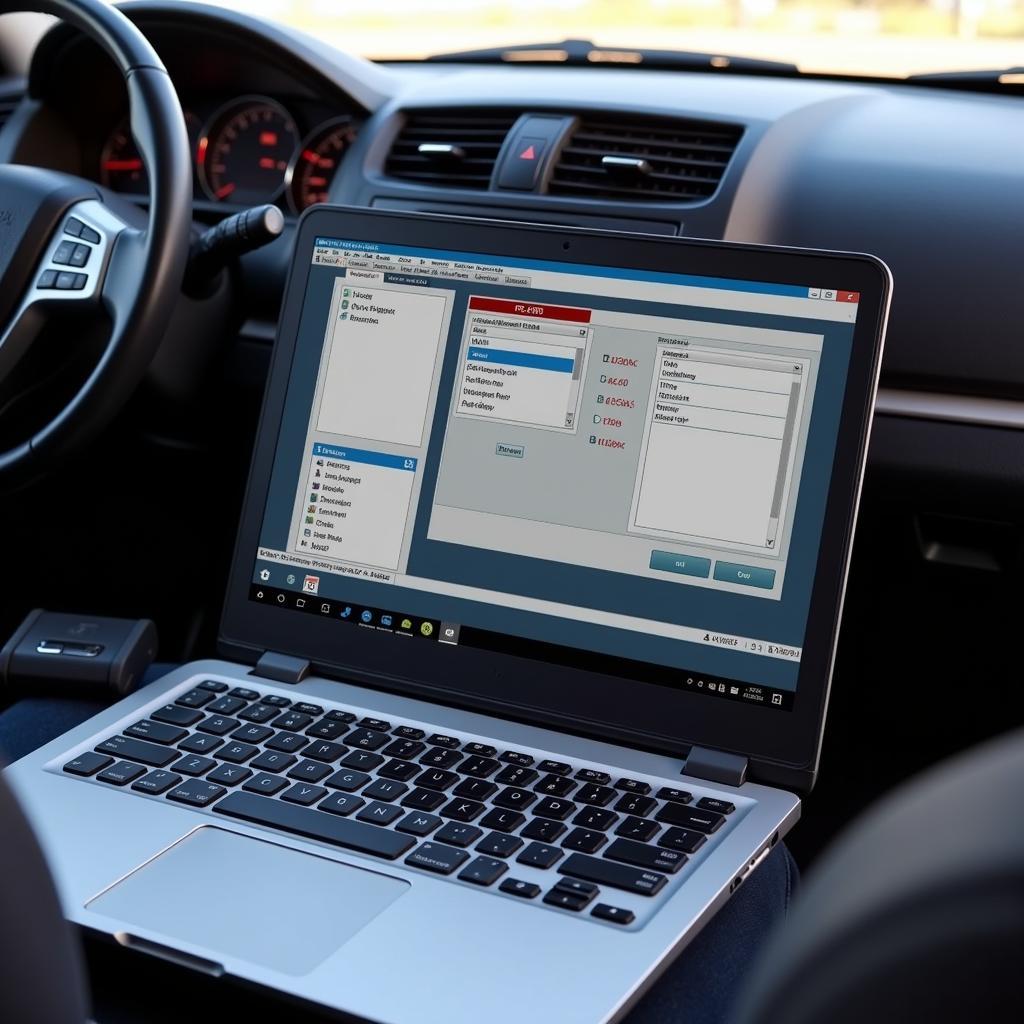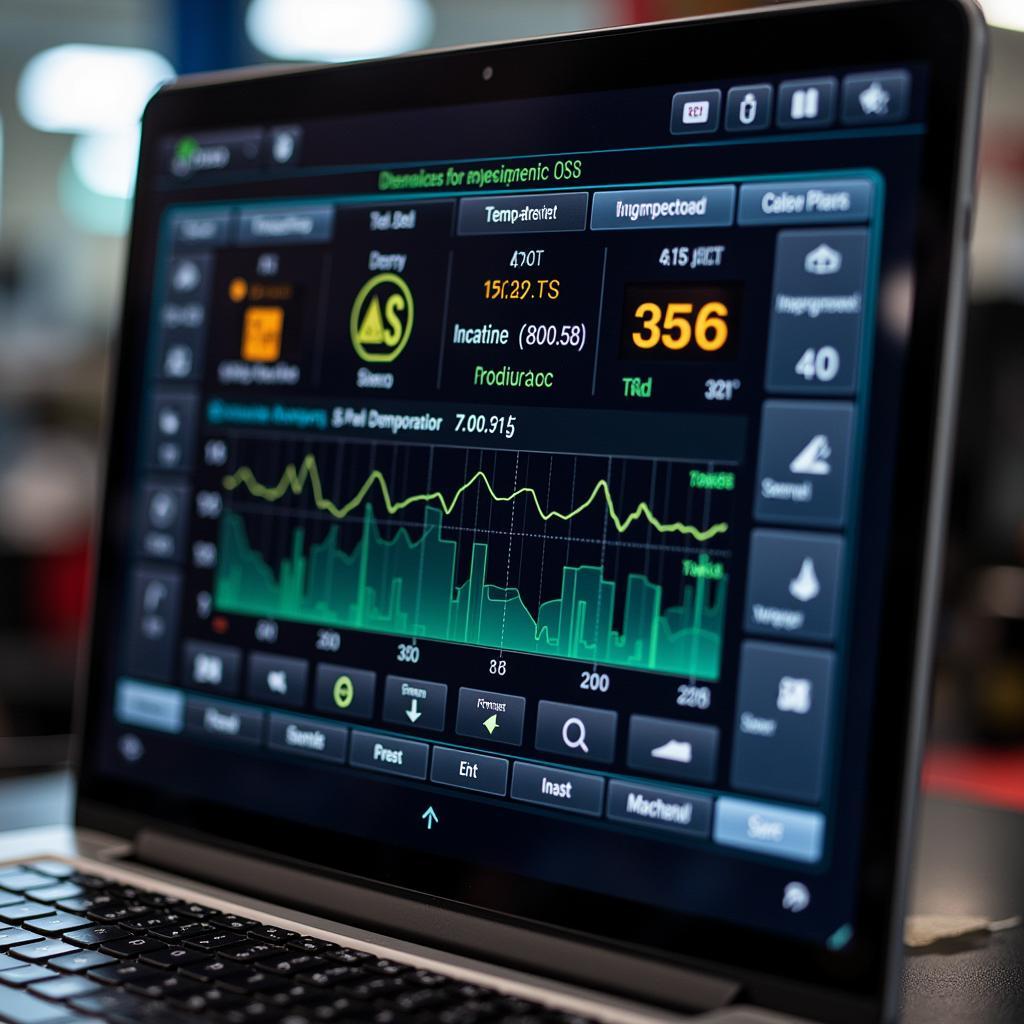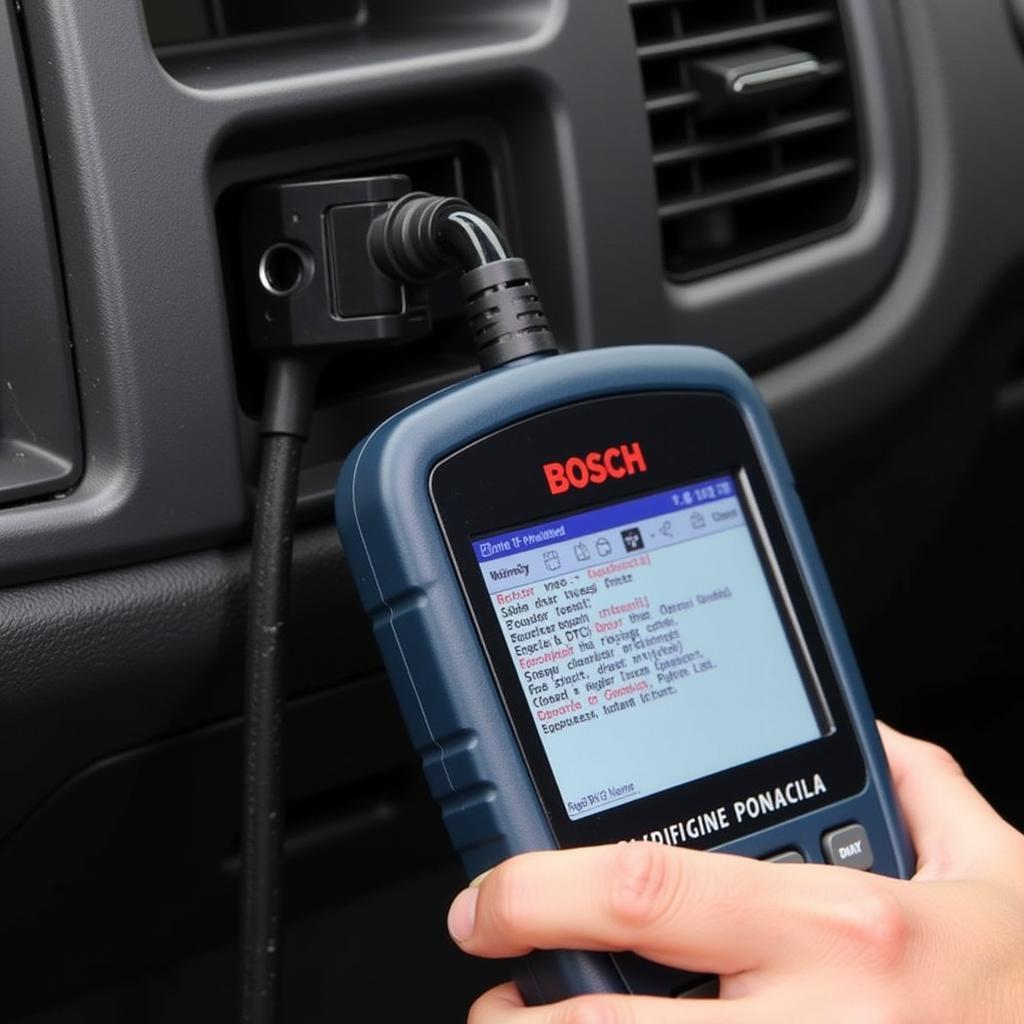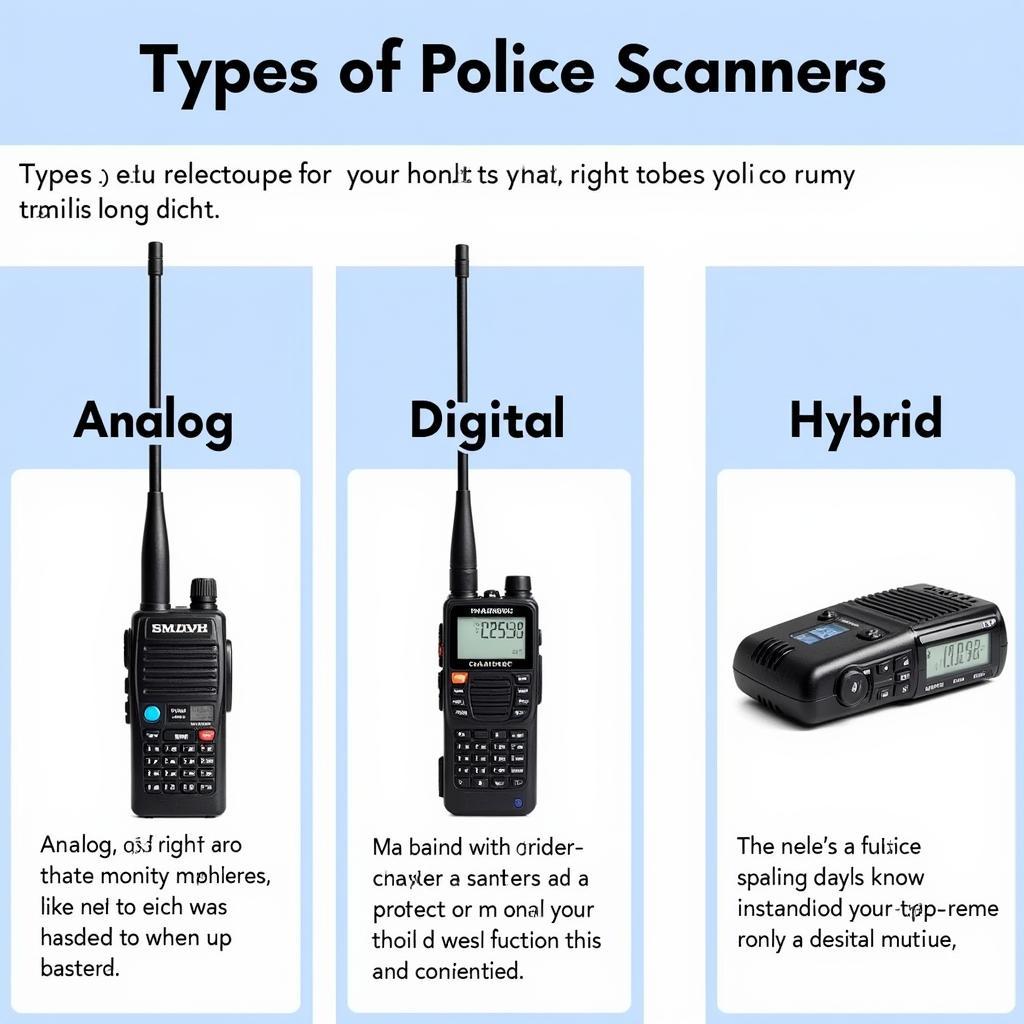PC based scan tools are revolutionizing automotive diagnostics, offering unprecedented power and flexibility for car owners, repair shops, and technicians alike. These tools provide a cost-effective and efficient way to troubleshoot complex vehicle issues, access vital data, and perform advanced functions beyond the capabilities of traditional handheld scanners.
Accessing more sophisticated diagnostic capabilities is now easier than ever with the rise of scanning tools. From reading and clearing diagnostic trouble codes (DTCs) to performing bidirectional controls and programming modules, PC based scan tools empower users with a comprehensive suite of features to accurately diagnose and resolve automotive problems.
Understanding the Power of a PC Based Scan Tool Automotive
A Pc Based Scan Tool Automotive utilizes the processing power and versatility of a personal computer to deliver a superior diagnostic experience. This setup allows for more complex software, larger data storage, and continuous updates, ensuring compatibility with the latest vehicle models and technologies. This adaptability is crucial in today’s rapidly evolving automotive landscape, where new systems and protocols are constantly being introduced. Choosing the right scan tool can significantly impact your diagnostic efficiency and the quality of your repairs.
 PC based scan tool connected to a car via OBD-II port
PC based scan tool connected to a car via OBD-II port
Unlike handheld scanners with limited functionality and storage, PC based scan tool automotive systems can handle vast amounts of data, including live data streams, freeze frame data, and historical DTC records. This wealth of information enables in-depth analysis, aiding in pinpointing the root cause of even the most elusive automotive problems. Moreover, the customizable software interfaces of PC based scan tools often offer features like graphing, data logging, and advanced reporting capabilities.
Choosing the Right PC Based Scan Tool Automotive: A Guide
Selecting the right pc based bidirectional scan tool depends on several factors, including your budget, diagnostic needs, and the types of vehicles you typically work with. Consider the following when making your decision:
- Software Compatibility: Ensure the software supports the makes and models you service, including access to manufacturer-specific protocols.
- Hardware Requirements: Check if your PC meets the minimum system requirements for the scan tool software.
- Update Frequency: Regular updates are crucial for staying current with the latest vehicle technologies and diagnostic procedures. Opt for tools with frequent and easy-to-install updates.
- User Interface: A user-friendly interface simplifies the diagnostic process, enabling quick access to essential functions and data.
- Technical Support: Reliable technical support can be invaluable when encountering difficulties or needing assistance with specific diagnostic procedures.
Key Features to Look For
When evaluating a PC based scan tool automotive, certain features can significantly enhance its diagnostic capabilities:
- Bidirectional Control: This feature allows you to command actuators, such as solenoids and relays, to test their functionality and isolate faulty components.
- Advanced Code Reading: Beyond simply reading and clearing DTCs, look for tools that offer detailed code descriptions, possible causes, and suggested repair procedures.
- Live Data Streaming: Monitor real-time sensor data to observe system performance and identify anomalies under various operating conditions.
- Data Logging: Record data over time to analyze trends and diagnose intermittent issues.
“A powerful PC based scan tool is an indispensable asset for any serious automotive technician,” says John Miller, a veteran automotive diagnostician with over 20 years of experience. “The ability to access deep data, perform bidirectional controls, and customize the software to your specific needs makes these tools invaluable in today’s complex automotive environment.”
Maximizing Your Diagnostic Efficiency with a PC Based Scan Tool
Properly utilizing a windows system scan tool requires more than just connecting it to the vehicle’s OBD-II port. Understanding the software, interpreting the data, and applying diagnostic logic are essential for successful troubleshooting. Consider these tips to maximize your diagnostic efficiency:
- Familiarize yourself with the software: Explore the various features and functions of your chosen scan tool software.
- Keep your software updated: Regular updates ensure compatibility with the latest vehicles and diagnostic protocols.
- Understand diagnostic trouble codes (DTCs): Learn how to interpret DTCs and use them as a starting point for your diagnostic process.
 PC based scan tool displaying diagnostic data on a laptop screen
PC based scan tool displaying diagnostic data on a laptop screen
- Utilize live data streaming: Monitor real-time sensor data to observe system performance under different operating conditions.
- Consult repair manuals and wiring diagrams: These resources provide valuable information about specific vehicle systems and components.
“Investing in a quality PC based scan tool has significantly improved our diagnostic capabilities and reduced repair times,” shares David Smith, owner of Smith’s Auto Repair. “The comprehensive data and advanced features allow us to pinpoint problems quickly and efficiently, leading to increased customer satisfaction.”
Conclusion
PC based scan tool automotive technology has become an essential tool for anyone serious about automotive diagnostics. From the DIY enthusiast to the professional technician, these tools offer a level of insight and control that surpasses traditional handheld scanners. By understanding the features, selecting the right tool for your needs, and utilizing it effectively, you can unlock a new level of diagnostic power and efficiency. For more information and support on PC based scan tools, feel free to connect with us at ScanToolUS. Our phone number is +1 (641) 206-8880 and our office is located at 1615 S Laramie Ave, Cicero, IL 60804, USA. We are here to help you find the perfect diagnostic solution.
FAQs
- What are the advantages of using a PC based scan tool over a handheld scanner? PC based scan tools offer more features, deeper data analysis, larger data storage, regular updates, and customizable software.
- Do I need a specific type of computer to use a PC based scan tool? Check the software’s system requirements to ensure compatibility with your PC.
- How often should I update my PC based scan tool software? Regular updates are recommended to ensure compatibility with the latest vehicle technologies and diagnostic procedures.
- What is bidirectional control, and why is it important? Bidirectional control allows you to command actuators to test their functionality, aiding in isolating faulty components.
- Where can I find support for my ids scan tool ford? Contact the manufacturer or consult online forums and communities for support.
- Can a PC based scan tool be used on all car makes and models? Compatibility varies depending on the software and the specific vehicle protocols supported.
- What is the best hdd scan tool? This depends on your individual needs. You can contact us at ScanToolUS for more personalized advice.


